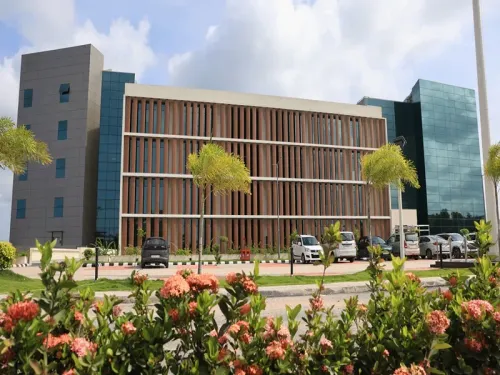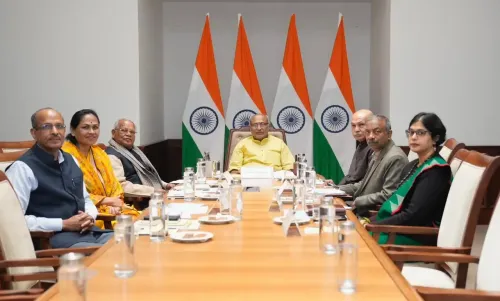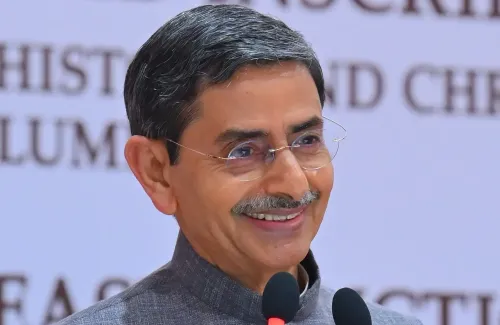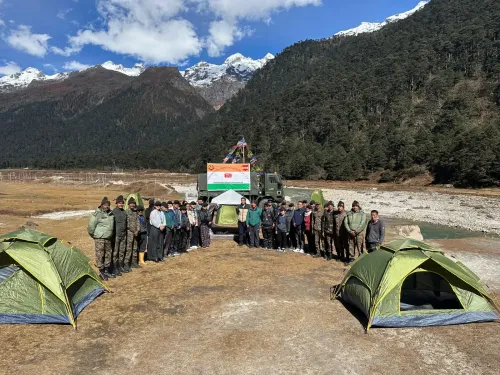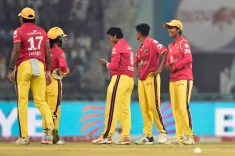Will Rameswaram Fishermen's Protests and Hunger Strike on Aug 15 End Sri Lankan Navy Arrests?
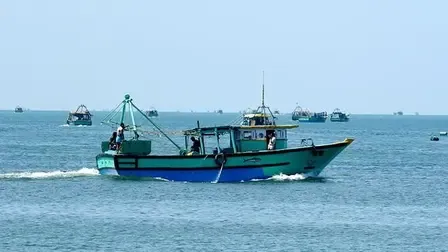
Synopsis
Key Takeaways
- Protests highlight the ongoing struggle of Rameswaram fishermen.
- A hunger strike is planned for India's Independence Day.
- Diplomatic intervention is sought to address repeated arrests.
- The fishing community is advocating for their traditional rights.
- The situation continues to impact livelihoods in the region.
Chennai, Aug 10 (NationPress) Following the detention of eight fishermen from Rameswaram by the Sri Lankan Navy, the Rameswaram All Fishermen's Association declared a series of protests, culminating in a hunger strike on August 15, coinciding with India's Independence Day.
The fishermen faced allegations of infringing upon the International Maritime Boundary Line (IMBL) and were taken along with their vessels, a recurring issue that jeopardizes the coastal community's livelihood and ignites ongoing diplomatic friction.
During an urgent meeting, the association passed a resolution demanding the immediate release of the detained fishermen and the return of their confiscated boats.
"These arrests are ruining our lives. Fishing is our sole source of income, and the ongoing threats from the Sri Lankan Navy have rendered our existence precarious," stated a representative of the association.
Details of the protest schedule were outlined, starting with an indefinite strike on August 11.
A demonstration is set to take place near the Thangachimadam Valasai Bus Stand on August 13.
Furthermore, fishermen plan to execute a rail blockade on August 19 at 3 p.m. to amplify their demands.
The protests aim to attract national attention to the ongoing arrests and seizures occurring in the Palk Bay region.
Tamil Nadu Chief Minister M.K. Stalin has raised this issue with the Central government.
In a recent correspondence to Union External Affairs Minister S. Jaishankar, Chief Minister Stalin urged prompt diplomatic efforts to halt the recurrent apprehensions of Tamil Nadu fishermen.
He noted that on August 6, 14 fishermen from the state, along with their boats, were captured by the Sri Lankan Navy.
"This marks the 17th incident of this nature this year," CM Stalin highlighted, noting that 237 boats and 80 fishermen from Tamil Nadu remain in Sri Lankan custody.
He emphasized that losing boats not only robs fishermen of their primary income source but also strips them of their right to fish in traditional waters—a right that the fishing community has cherished for generations.
Fishermen's associations have long advocated for a sustainable bilateral resolution to the dispute, which includes measures to prevent arrests, ensure the return of boats, and protect traditional fishing rights.
Until such a resolution is achieved, they assert that the community will continue to endure persistent disruptions to its livelihood.

